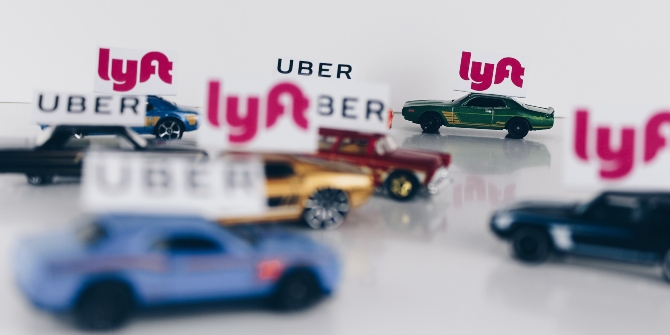
The Covid-19 pandemic is so disruptive that it is forcing ventures to experiment at an unprecedented rate and scale as we realise that what was recently essential is not now needed (think fitness centres, ride-sharing, and classrooms) and what was not needed before has become essential (think video sharing and drive-by diagnostics).
Given the massive discontinuities underway and yet to come, the reality for most entrepreneurs and business owners is stark: if they do not experiment and adapt, many of their ventures will either disappear or join the rapidly swelling ranks of zombie companies.
The founders of Tulu were surprised when their shared economy startup saw rentals increasing sharply as the new coronavirus began hitting New York in March 2020. Yishai Lehavi, Yael Shemer and Itamar Mofaz had co-founded Tulu in 2019 to provide apartment dwellers with rental-in-place appliances. Instead of paying hundreds of dollars to own a Dyson or pasta maker they rarely used, residents could simply walk downstairs, usually in the building basement or first floor, self-check-out the appliance through the Tulu app, and be charged by the hour.
The Tulu model exemplifies the concept of the sharing economy – rent and use, but don’t buy. However, as shelter-in-place became mandatory, Tulu realised that stay-at-home shopping – not only renting — was suddenly in demand. Why not bring into the building products that people could not go out for, and might not find in stores even if they did go out? In just three days Tulu started to sell consumer products like toilet paper and pasta, by leveraging the existing Tulu units and logistics infrastructure.
Tulu’s team was nimble enough to modify their business model overnight from rental only, to rent and buy. Its customers could now rent a pasta maker and buy the tomato sauce, in the same place and with the same smartphone application.
As the Tulu story illustrates, the key to changing your business model in the midst of a pandemic, or any major market disruption for that matter, is to answer three questions:
- How is the pandemic changing my customers’ needs?
- How can I provide new benefits to satisfy those needs?
- How should I monetise both existing and new benefits in new ways?
Tulu’s case demonstrates a speedy response to fundamentally changed customer needs. Pre-pandemic, Tulu’s rental-in-place units provided apartment dwellers first-and-foremost with cost and space savings – $2 per 30 minutes for an expensive appliance that took up no space at all inside customers’ homes. With the pandemic lockdown in New York, two secondary needs suddenly shifted to high priority – convenience and availability. Buying-in-place – a different business model – suddenly became more valuable, and the business model – paying for products such as toilet paper and pasta – an important add-on to renting.
Let’s be clear: changing your business model is not changing your business. Switching from making vodka to making hand sanitiser is changing your business. Renting out your vodka bottling facility to a hand sanitiser manufacturer is a change in business model.
Konnecto, an Israeli marketing tech startup, successfully transitioned from selling discrete reports to subscriptions so that customers could generate their own reports on Konnecto’s platform. The platform enabled leading brands such as Mercedes-Benz and Coca-Cola to understand the behaviours and needs of consumers in previously impossible granular detail. In addition, the platform enabled the brands to rapidly and flexibly answer questions and experiment new campaigns in days.
With the pandemic, a need that had been secondary – to reduce fixed costs such as annual subscriptions – suddenly became more prominent. The financial commitment of a long-term subscription had become a barrier, in particular to new customer acquisition. As a result, Konnecto dusted off the fixed-report product and immediately converted several new leads into paying customers.
The pandemic is forcing most entrepreneurs to experiment more intensely than ever. This entails risks, but not to try new business models out of fear may be the riskiest path of all. Innovations generated in response to the pandemic could lead to changes that will outlast the virus. For companies like Tulu it may lead to a stronger business model creating more value for the firm and its customers.
Disclaimer: Daniel Isenberg is a minor shareholder in Tulu and Konnecto.
♣♣♣
Notes:
- This blog post expresses the views of its author(s), not the position of LSE Business Review or the London School of Economics.
- Featured image by Thought Catalog on Unsplash
- When you leave a comment, you’re agreeing to our Comment Policy
 Daniel Isenberg is currently professor (adjunct) at Columbia Business School and Babson College, and author of Worthless, Impossible and Stupid: How Contrarian Entrepreneurs Create and Capture Extraordinary Value (Harvard, 2013). Isenberg is a thought and practice leader in applying the lessons of entrepreneurship to regional economic development, an active angel investor, and formerly a venture capitalist in Israel. Isenberg has the Ph.D. degree from Harvard University. . You can reach him at disen@babson.edu or follow him on Twitter: @danisen
Daniel Isenberg is currently professor (adjunct) at Columbia Business School and Babson College, and author of Worthless, Impossible and Stupid: How Contrarian Entrepreneurs Create and Capture Extraordinary Value (Harvard, 2013). Isenberg is a thought and practice leader in applying the lessons of entrepreneurship to regional economic development, an active angel investor, and formerly a venture capitalist in Israel. Isenberg has the Ph.D. degree from Harvard University. . You can reach him at disen@babson.edu or follow him on Twitter: @danisen
 Alessandro Di Fiore is the founder and chief executive of the European Centre for Strategic Innovation (ECSI) and ECSI Consulting, based in Boston and Milan. He is a consultant, author and media commentator on strategy and innovation. He has been included in the radar list of Thinkers50. Alessandro has worked in management consulting for more than two decades. Along the way he has advised more than 25 Fortune 500 companies throughout the world on strategy and organisational change. He started his consulting career as a product manager at Gemini Consulting, where he was responsible for life sciences in continental Europe, managing director for Italy and global head of its Market Focused Strategy Center of Excellence. You can reach him at adifiore@ecsi-consulting.com or follow him on Twitter @alexdifiore.
Alessandro Di Fiore is the founder and chief executive of the European Centre for Strategic Innovation (ECSI) and ECSI Consulting, based in Boston and Milan. He is a consultant, author and media commentator on strategy and innovation. He has been included in the radar list of Thinkers50. Alessandro has worked in management consulting for more than two decades. Along the way he has advised more than 25 Fortune 500 companies throughout the world on strategy and organisational change. He started his consulting career as a product manager at Gemini Consulting, where he was responsible for life sciences in continental Europe, managing director for Italy and global head of its Market Focused Strategy Center of Excellence. You can reach him at adifiore@ecsi-consulting.com or follow him on Twitter @alexdifiore.





